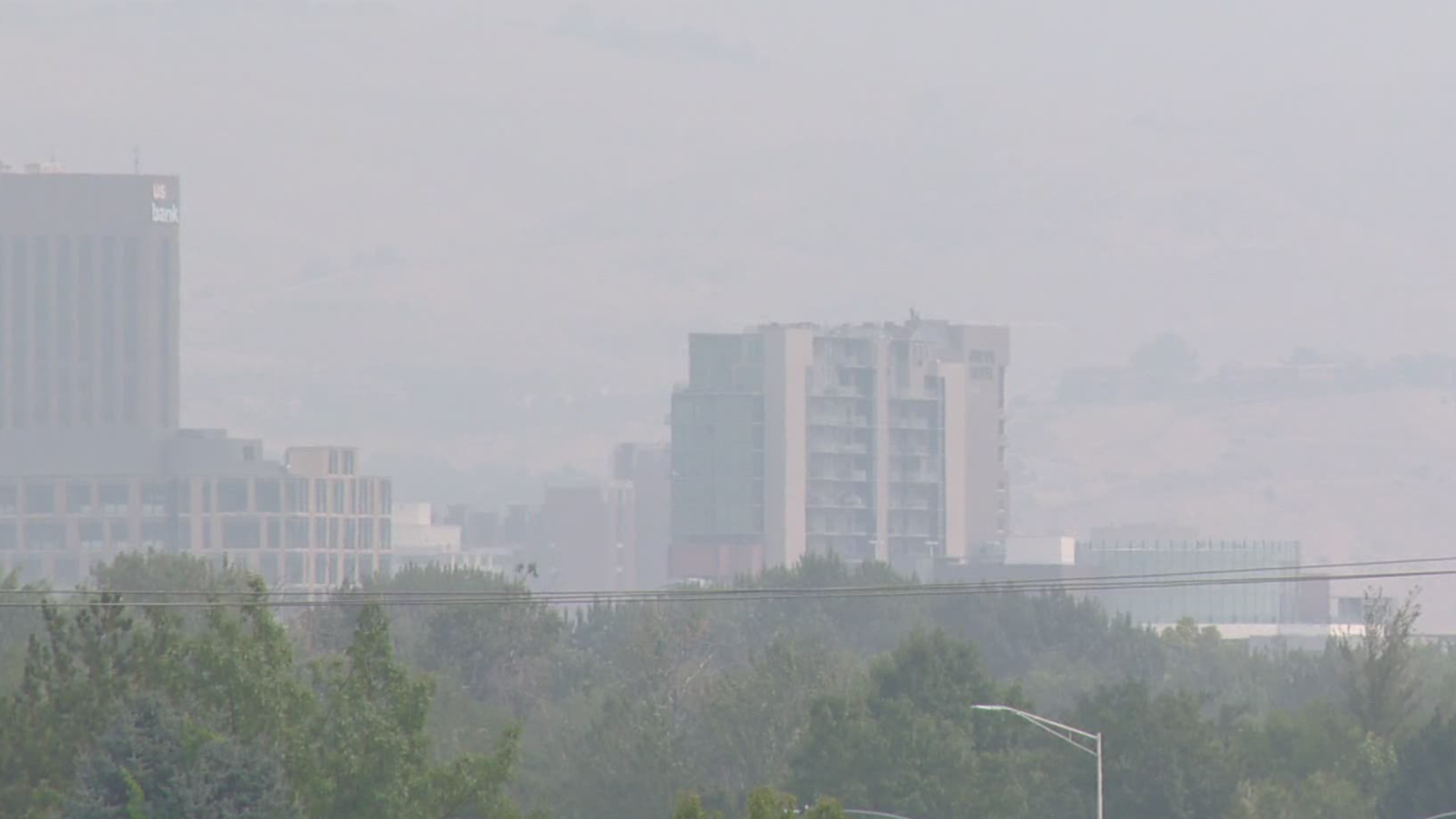BOISE, Idaho — Wildfires continue to spread throughout the West as temperatures continue to increase, with several thousand-acre wildfires burning in the Gem State. These fires have led to smoky skies throughout the Treasure Valley and beyond.
The US National Weather Service Boise posted on Facebook a gif of the HRRR smoke model showing smoke from wildfires north of Redding, CA drifting into eastern Oregon and parts of Idaho.
Current forecast models only go to 6 a.m. on July 2 and do not show much smoke reaching the Treasure Valley but a large volume of smoke is anticipated to stretch from La Grande, Ore. to Missoula, MT.
You can view KTVB's interactive map of current wildfires in Idaho and Oregon by clicking here.
The Idaho Department of Environmental Quality (DEQ) has listed Boise, Meridian, Garden City, and Nampa in the "Moderate" category. This means the air quality is acceptable but could impact sensitive groups, according to KTVB meteorologist Bri Eggers.
While the smoke can cause serious health effects with prolonged exposure, Bri said the smoke will keep temperatures about three to five degrees lower than they would be in smoke-free skies.
Air quality is determined by DEQ and organized in the following categories:
- Good- Air quality is satisfactory and no risk is posed by pollutants
- Moderate- Air quality is acceptable but pollutants could impact sensitive groups
- Unhealthy for sensitive groups- Sensitive groups may experience health effects but the general population is safe
- Unhealthy- The general population may experience health effects; sensitive groups may be at risk for serious health effects
- Very unhealthy- Health warnings of emergency conditions; the general population is at higher risk for health effects
- Hazardous- Unsafe for all groups; more likely all groups will experience severe health effects
You can check the air quality in your area in real-time with the interactive map below:
When air conditions are unhealthy or worse, everyone is at risk for health effects. Sensitive groups are at higher risk of serious health effects and DEQ recommends everyone limit time spent outdoors and avoid prolonged exertion.
It is very important to keep yourself and health-compromised individuals protected from the smoke, but it is also important to ensure pets are protected. Dr. Jessica Reed, medical director for Seattle Humane, said pet owners should keep animals inside and limit their exercise when the air quality is at unhealthy levels.
Smoke inhalation can cause disorientation and confusion, fainting, lethargy and seizures.
Some signs that your pet might be having difficulty include:
- Coughing
- Sneezing
- Watery eyes
- Difficulty breathing
- Pet is quieter than normal
- Not wanting to eat or drink
Reed said some older animals and certain animals – like pugs, Boston terriers, or animals with shorter noses - are at a heightened risk for respiratory issues.
Keeping your windows and doors closed and using an indoor high-efficiency HEPA filter can help keep indoor air as clean as possible.
Watch more on wildfires in the West:
See all of our latest coverage in our YouTube playlist:

